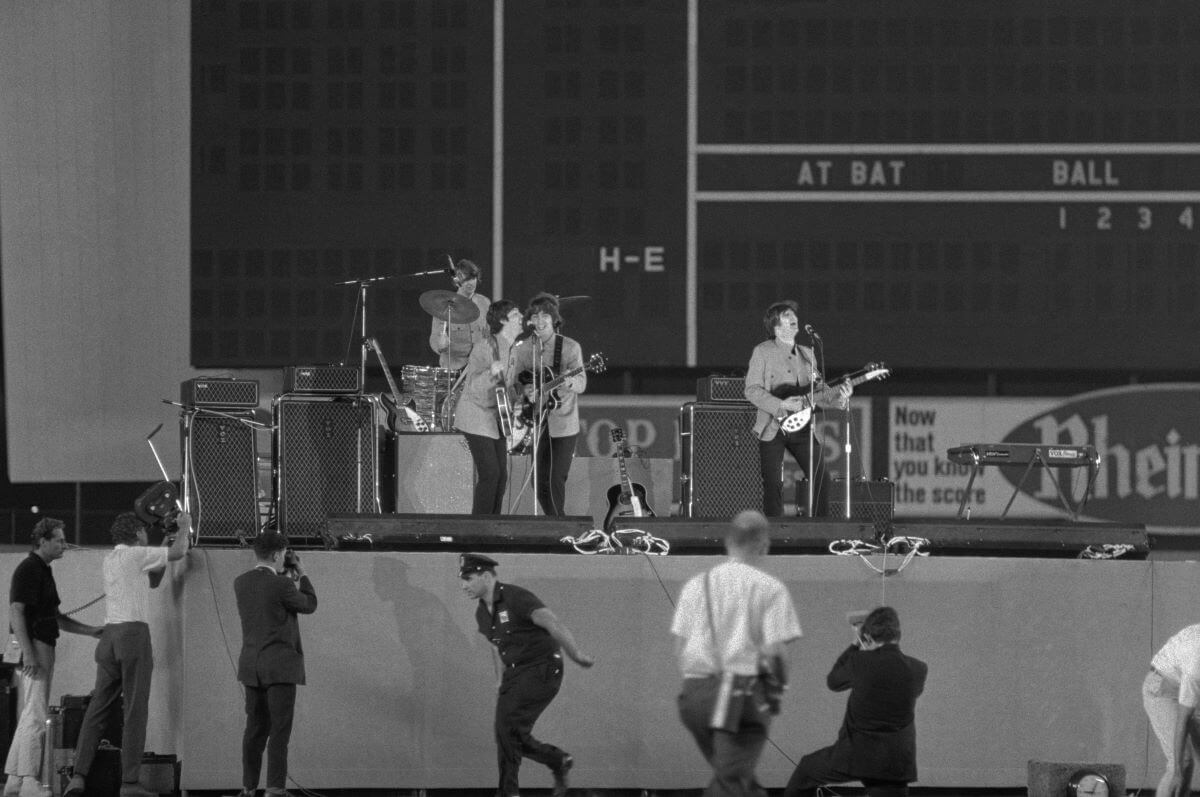
The Beatles: Photos From Shea Stadium Show What Life Was Like During Beatlemania
In 1965, The Beatles played their largest concert to date at New York’s Shea Stadium. The crowd was enormous, with 55,000 fans in attendance. The show symbolized the height of Beatlemania. The band played surrounded by thousands of people who screamed through the concert. Though they found it incredibly nerve-wracking and overwhelming, they still enjoyed the performance.
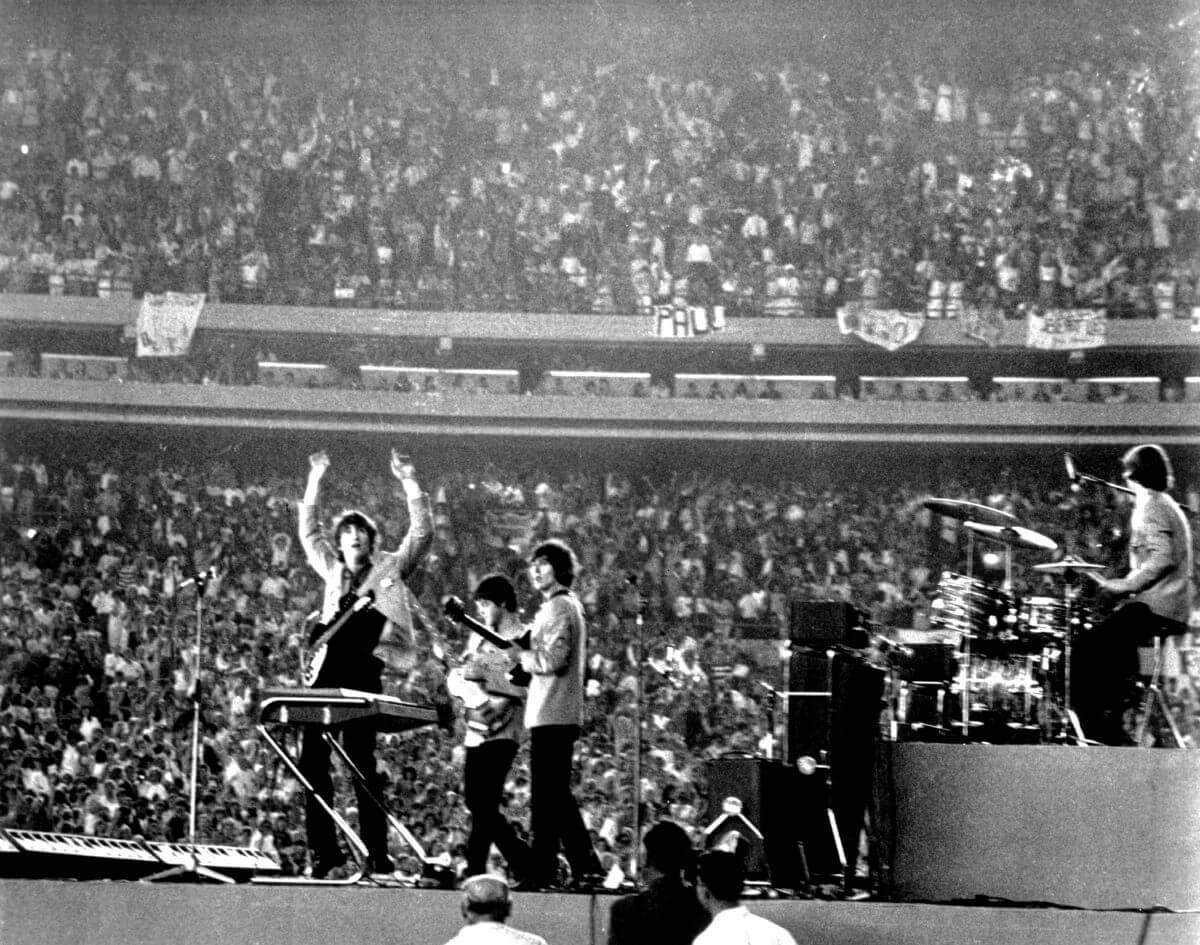
On Aug. 15, 1965, The Beatles took the stage at Shea Stadium. At this point in their careers, they were used to playing large concerts and facing the intensity of their fans. Still, they found this show particularly nerve-wracking.
“If you look at the film footage you can see how we reacted to the place,” Ringo Starr said in The Beatles Anthology. “It was very big and very strange.”
Their stage was on the baseball field, and fans filled the arena around them. According to John Lennon, they could see that fans held up posters, but they were too far away to read what any of them said.
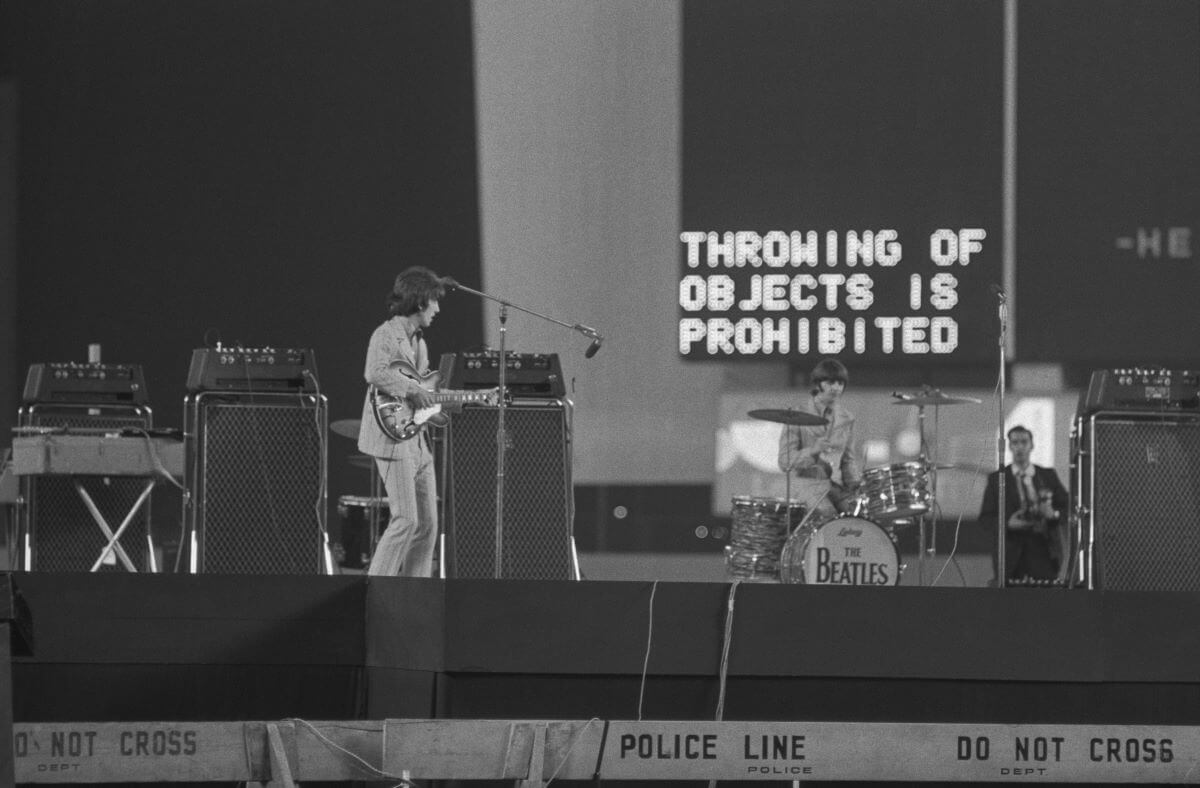
The Beatles performed behind a police barricade and in front of signage that told the audience not to throw anything at them. They had previously learned the hard way that if they said they liked anything, fans would pelt them with it as they performed. The warnings at Shea Stadium protected them from getting rained on with candy, toilet paper, and other objects.
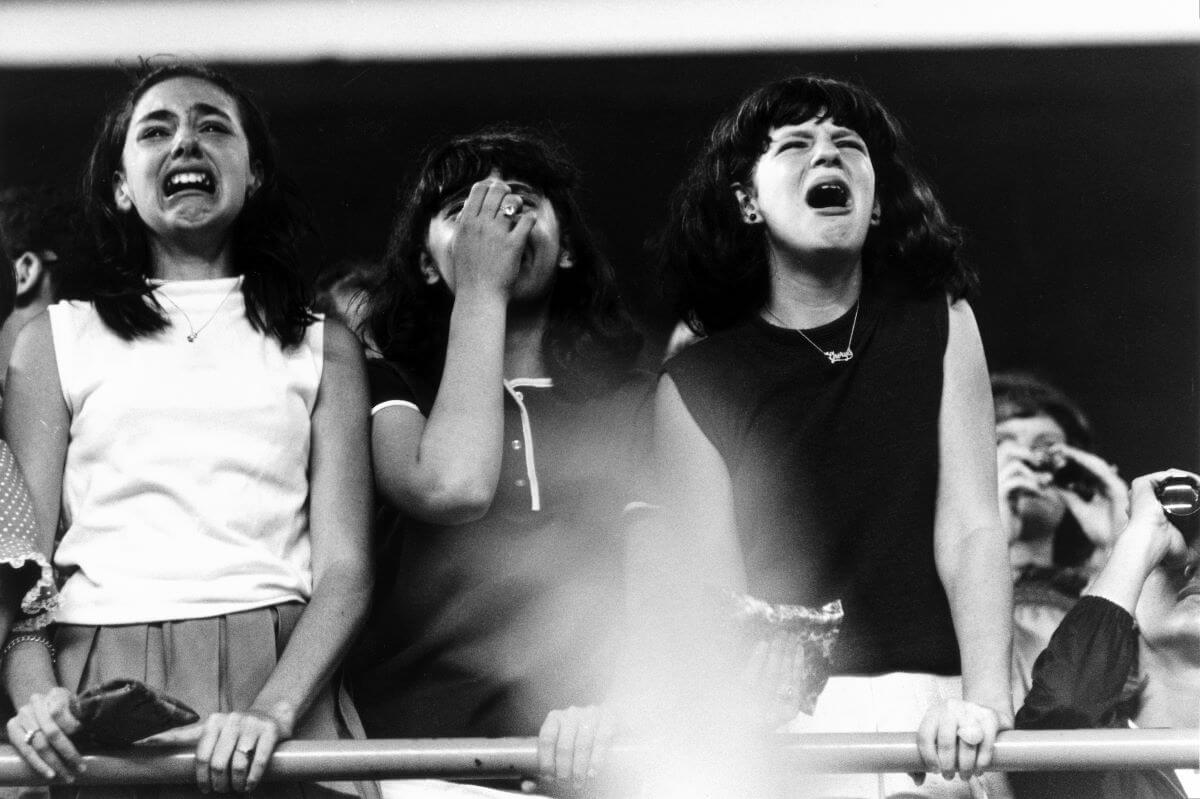
Though warnings and the band’s distance from the crowd protected them from projectiles, there was little they could do to guard their ears against the sound of screaming. The moment The Beatles walked out on the field, over 55,000 people began shrieking. Fans wept, screamed, and sang all through the show. Some even yelled for so long that they passed out. It was so loud that the band couldn’t even hear themselves play.
“We played for four or five years being completely heard and it was good fun,” John Lennon once said. “And it’s just as good fun to play being not heard and being more popular. They pay the money; if they want to scream — scream. We scream, literally; we’re just screaming at them, only with guitars. Everybody’s screaming — there’s no harm in it.”
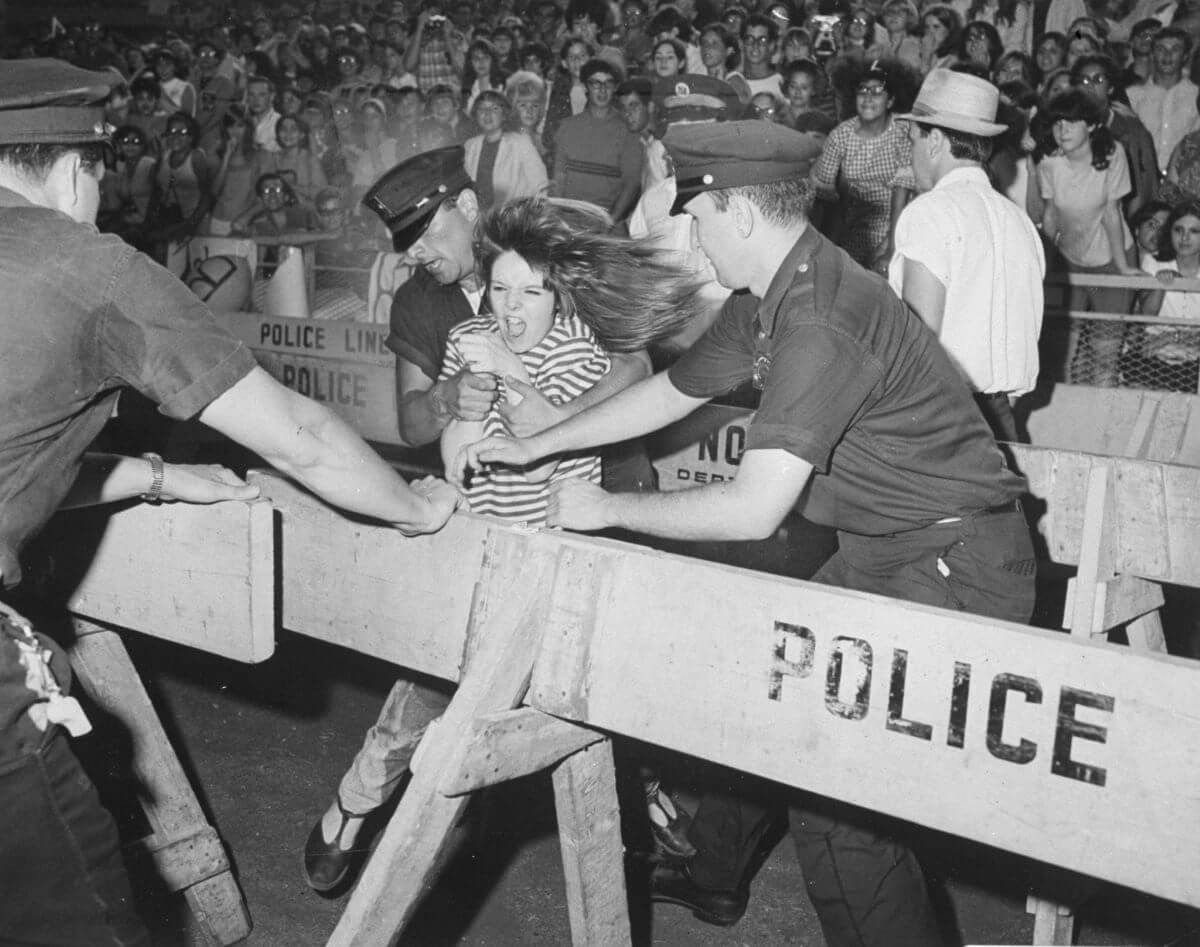
Police barricades circled the stage and the seating. Officers also were on hand to ensure nobody reached the band. Here, three officers stop a determined fan attempting to make a break for the stage.
“In America it was more security and press, and taking care of the general madness,” road manager Neil Aspinall said. “I’d be talking to the chief of police, working out how The Beatles were going to get in and out, and taking care of whatever else came down the pike.”
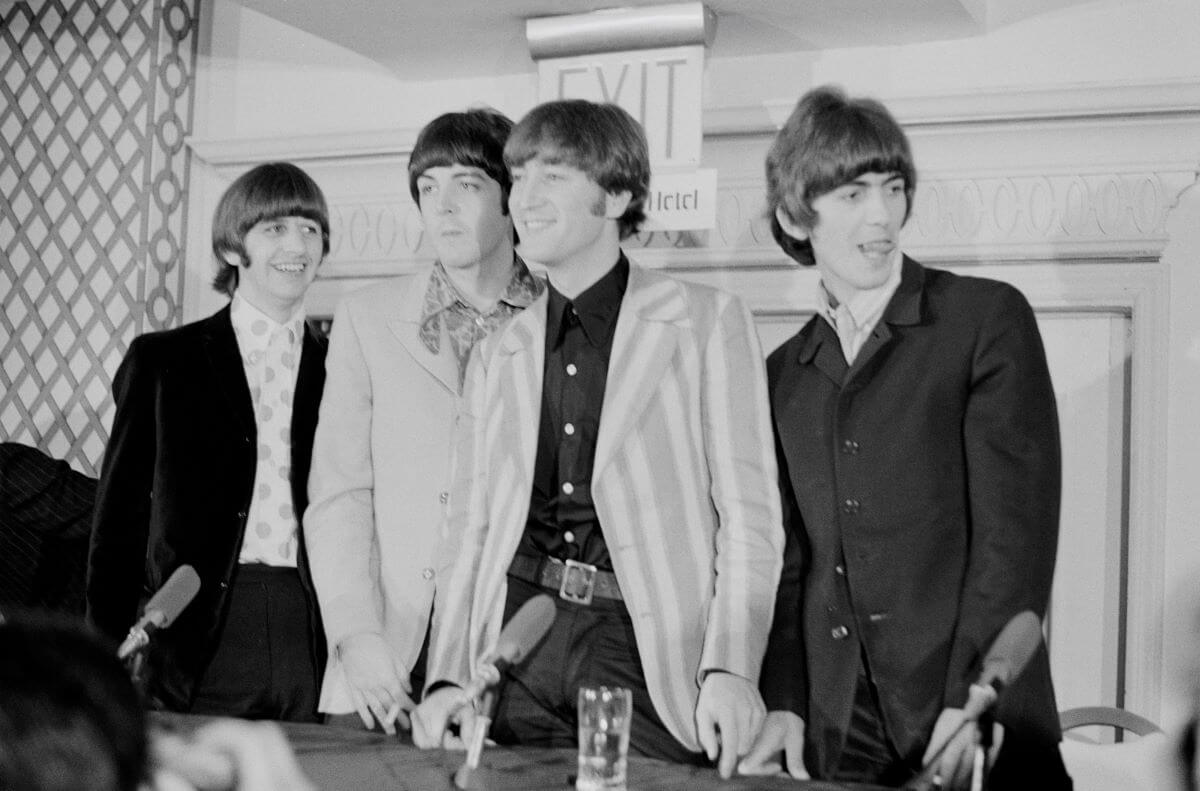
The chaos they faced at shows grew increasingly exhausting. Just a year after their show at Shea Stadium, The Beatles made the decision to stop touring. Their final year of shows was grating and often dangerous. They dealt with nasty weather, death threats, and over-enthusiastic crowds. Paul McCartney was the biggest proponent of live performances, but even he’d had enough after their 1966 tour of America.
“In 1966 the road was getting pretty boring,” Starr once said, per Rolling Stone. “It was coming to the end for me. Nobody was listening at the shows. That was OK at the beginning, but we were playing really bad.”
Though disappointing for fans, the decision to stop touring benefitted The Beatles’ music. Once they had time to solely focus on writing and recording, they put out some of their best music.


